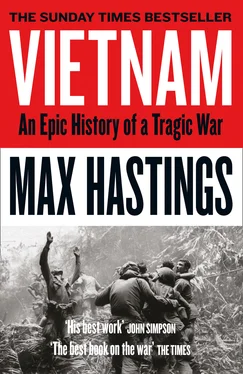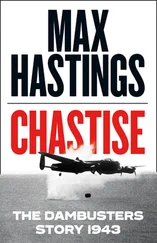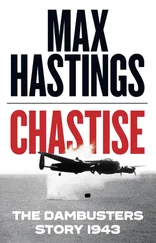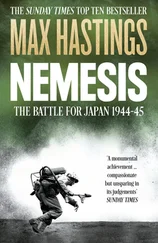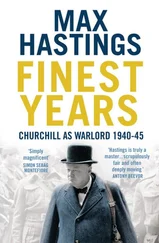The Austrian-born French writer and adventurer Bernard Fall’s books on his nation’s Indochina war are often cited as classics: they offer vivid anecdotage, some of it believable, and shrewd analysis of the difficulties of conducting counter-insurgency. Yet they embrace an essentially heroic vision of the French army, while remaining mute about the many atrocities its soldiers committed, of which Fall, as a contemporary witness, must have been aware. Vietnamese in French service showed little more sensitivity: American Howard Simpson watched exuberant parachutists tearing down a Saigon street in a jeep which crushed and scattered a row of bamboo panniers, filled with red peppers laid out to dry in the sun. After the vehicle passed, two old women set to work painstakingly to collect the debris and salvage what they could of their ravaged wares. Here was a minuscule event amid a vast tragedy, yet Simpson asked himself, how could it fail to influence the hearts and minds of its victims, those two elderly street-sellers?
Early in 1948 a half-hearted attempt was made to establish an anti-communist political front under the patronage of Bao Dai, who returned from exile shortly afterwards at the age of thirty-four. Yet the emperor, indolent and spoilt, was soon preoccupied with currency racketeering in partnership with French politicians. Bereft of both moral and political authority, his interests were girls, hunting and yachts. Thus France resolved to settle its difficulties by military means, and eventually deployed in Indochina sixty-two infantry battalions including thirteen North African, three paratroop, and six Foreign Legion. In addition several hundred thousand militiamen, of doubtful utility, guarded villages and roads.
Until the last stage of the war, the French never lacked for local volunteers, who needed the money. Some Vietnamese soldiers distinguished themselves in France’s service – brave, proficient, loyal to their salt. Many more, however, proved reluctant to fight with anything like the necessary determination. Moreover, French commanders never resolved a chronic dilemma: how to concentrate superior strength against Giap’s regular formations in the north, while protecting a thousand prospective targets elsewhere. Neither the French and their allies nor the communists had strength enough to dominate the whole country. In Christopher Goscha’s words: ‘Instead they all administered competing, archipelago-like states, whose sovereignties and control over people and territories could expand and shrink as armies moved in and out and the balance of power shifted.’ It seems to some historians strange that the French, who had so recently suffered a cruel occupation of their own homeland, should decline to recognise that atrocities alienate. Yet some Frenchmen derived a different message from their experience: that Nazi harshness had worked, until mid-1944 cowing an overwhelming majority of their countrymen.
In October 1949 the struggle intensified dramatically. China, Vietnam’s giant northern neighbour, acquired a communist government led by Mao Zedong, which set aside his nation’s historic animosity to back the Vietminh. Suddenly, Ho and Giap gained access to safe havens and American weapons captured from Chiang Kai-shek’s defeated Nationalists. Vietminh training schools were established behind Mao’s frontier. Hundreds of Chinese military advisers attached themselves to Giap’s troops. In the north-west of Vietnam, the French began to suffer calamitous attrition. They were striving to hold the country with forces largely confined to the roads, against an enemy of the jungle and mountains. One ambush on Route 4, which twisted through mountain defiles just below the Chinese border, cost a column of a hundred vehicles half that number, and most of the occupants were butchered. The French were obliged to relinquish swathes of territory.
One of the most extraordinary human stories of that period concerns Le Duan, who would later succeed Ho Chi Minh. Born in 1907 in central Vietnam, he was a committed communist revolutionary a decade before Ho returned from exile, serving two long terms of imprisonment. He now acted as secretary of COSVN, the Vietminh’s southern directorate. Where other leaders had their own huts, bodyguards and cooks, the grimly austere Le Duan chose to sleep in a sampan moored deep in the Mekong delta, from which he worked with two aides. Among their couriers was a pretty, French-educated girl named Nguyen Thuy Nga. She was in love with another revolutionary, but the province Party committee had terminated the relationship, because the man had a wife and family elsewhere.
One day in 1950 Le Duan asked Nga to join him for breakfast. She was somewhat in awe of the ferocious energy and commitment that had earned him the nickname ‘two hundred-candlepower’. Tall, lean, gaunt, his clothes were in rags. Chain-smoking incessantly, he seemed to have no thought for anything save the revolution, and was twice Nga’s age. Before long, however, he announced that he had chosen her as his bride. She remonstrated that he, like her previous lover, already had a wife and children in the north. Le Duan shrugged that he had been victim of an arranged marriage, and had known nothing of his ‘wife’ for twenty years. Their wedding was held at COSVN jungle headquarters with Le Duan’s close comrade Le Duc Tho acting as matchmaker. The couple’s new life was scarcely domesticated: there was no trousseau, for the bride owned only a single pair of trousers. When they shifted camp, taking what little they owned in sampans, often Nga had to leap into the water alongside the men and push the boat over shallow places. They were always hungry, and seldom found more than a few jungle roots and vegetables with which to flavour the meagre rice ration.
Through 1951–52 Nga worked devotedly as Le Duan’s political secretary, and gave birth to a daughter named Vu Anh. Her husband seemed to love her, and once astonished her by a gesture of shameless frivolity when she approached COSVN through a patch of elephant grass. Glimpsing her he ran forward, seized her by both hands and swung her joyfully around himself. Here was an almost unique glimpse of human frailty in the life of this icily focused man who would play a role in Vietnam’s wars second only to that of Ho.
From 1951 onwards, the Vietminh emphasised ever more strongly the centrality of ideology, which in earlier years Ho downplayed. The Chinese supplied not merely military tutelage, but also political advice about how to establish a communist society, for which a key imperative was suppression of dissent: in the first two years of Mao Zedong’s rule, he killed an estimated two million of his own people. Now, in many Vietminh-controlled areas, radios were banned, to deny peasants access to information save that dispensed by the Party. Most intellectuals and middle-class adherents of the movement became outcasts.
Because the most fiercely contested battlefields lay in the north, that region’s people suffered dreadfully at the hands of both sides. Nguyen Cong Luan grew up in a small village near Hanoi, which reluctantly accepted French suzerainty. In consequence his father was seized by the Vietminh, subjected to torture, and eventually met death in one of their punishment camps. Yet colonial troops frequently detained his son, and on several occasions the boy feared for his life. France’s definition of its own role in Indochina as a mission civilisatrice was mocked by the reality. Luan wrote: ‘Our submission to the French military authority did not protect us from being looted, raped, tortured, or killed. Every private, whether he was a Frenchman, an African, or a Vietnamese could do almost anything he wanted to a Vietnamese civilian without fear of being tried in a court or punished by his superiors … A sergeant … had the power of a viceroy in the Middle Ages … People addressed him as “ Ngai ”, a word equivalent to “Your Excellency”, only used in connection with gods and mandarins.’
Читать дальше
